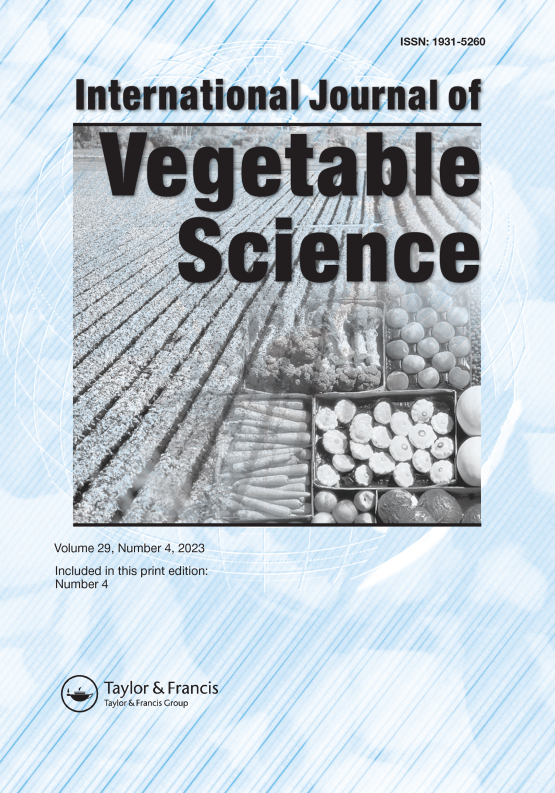Submit a Manuscript to the Journal
International Journal of Vegetable Science
For a Special Issue on
Vertical farming for next-generation crop culture methods
Manuscript deadline
30 November 2024

Special Issue Editor(s)
Giedrė Samuolienė,
Lithuanian Research Centre for Agriculture and Forestry, Institute of Horticulture
[email protected]
Most Tahera Naznin,
Department of Agriculture, Veterinary and Rangeland Sciences College of Agriculture, Biotechnology & Natural Resources University of Nevada, Reno, USA
[email protected]
Cinthia Nájera Vázquez,
Department of Agronomy, University of Almería
[email protected]
Vertical farming for next-generation crop culture methods
We are pleased to announce the release of a Special issue/Article collection dedicated to “Vertical farming for next-generation crop culture methods”. The demand for innovative agricultural approaches to ensure a sustainable food supply is increasing due to the rapid global population growth and technological progress. Vertical farming is a practical means of securing food security in the future without adding to the demand for land resources. Vertical farming offers several productive, economic, social, and environmental advantages, including reduced food transport, reduced water and fertilizer consumption through recirculation techniques, local employment creation, and reduced or eliminated pesticides and herbicides. Thus, the produce is year-round, safe, and of higher quality. No loss of production caused by floods, droughts, hurricanes, seasonal changes, use and use of renewable energies, and reuse of buildings or their use in the centers of large cities, as well as the adaptation of techniques that reduce labor production. While vertical farming has already demonstrated success in producing leafy greens, numerous challenges still need to be overcome, such as expensive startup and operating costs and complicated nutrition solution management. Vertical farming may become more profitable and sustainable if high-value crops like medicinal herbs, edible flowers, health-beneficial phytochemicals, and antioxidant-rich crops are grown there.
This special issue seeks to address this critical issue by providing a platform for researchers to share their studies and innovative solutions in vertical farming. We welcome articles on the most recent research discoveries, technological innovations, and valuable insights that help to improve and optimize the parameters and resources used in vertical farming., through their specific R&D advancements impacting plant growth, development, and metabolism, as well as explore plant physiological, genetical knowledge of cultivation methods on species-specific plant functioning.
Contributions are invited to explore various aspects of vegetable postharvest, including but not limited to:
- Innovative vertical farming techniques
- Nutrient management strategies in indoor farming
- Energy-efficient lighting in indoor farming
- Automation and robotics in vertical farming
- Economic and environmental sustainability assessments
- Crop diversification and high-value crop cultivation
- Enhancement of photosynthesis in a controlled environment
- Implementation of new growing media for vertical farming
- Improved photoperiod requirements
Any submissions will conform to the established guidelines of the journal and undergo peer review. We look forward to receiving your submissions and contributing to advancing knowledge in this critical field.
Looking to Publish your Research?
Find out how to publish your research open access with Taylor & Francis Group.
Choose open accessSubmission Instructions
Research and review essay articles will be accepted. The article should be written with the following elements in the following order: title page; abstract; keywords; main text introduction, materials and methods, results, discussion; acknowledgments; declaration of interest statement; references; appendices (as appropriate); table(s) with caption(s) (on individual pages); figures; figure captions (as a list). The research article should be no more than 8000 words, review essay article should be no more than 4000 words, including tables, references, figure or table captions, and footnotes. It should contain an unstructured abstract of 150 words and up to 6 keywords.
Please select the special issue "Vertical farming for next-generation crop culture methods" when submitting your paper to ScolarOne.